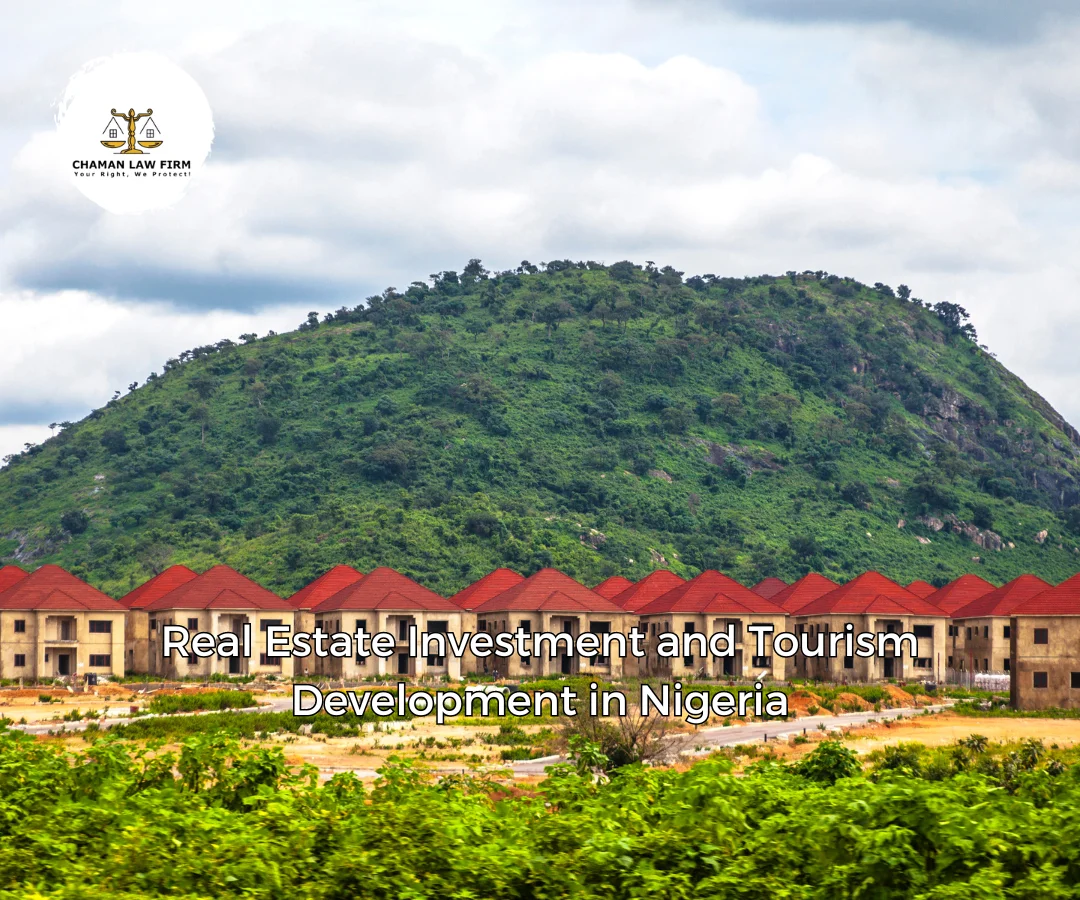Real Estate Investment in Nigeria; Real Estate Investment and Tourism Development in Nigeria
Nigeria’s real estate sector offers lucrative investment opportunities, driven by rapid urbanization, a growing middle class, and increasing demand for residential and commercial properties. Key cities like Lagos, Abuja, and Port Harcourt attract both local and foreign investors.
Tourism development is also expanding, with destinations such as Lagos beaches, Obudu Mountain Resort, and Yankari Game Reserve gaining popularity. Government initiatives, improved infrastructure, and private-sector investments are boosting the sector, making Nigeria a promising hub for real estate and tourism growth.
The Importance of Real Estate Investment in Nigeria’s Tourism Development
Nigeria, known for its rich cultural heritage and diverse natural landscapes, holds immense potential for tourism development. With its vibrant cities, historical sites, and stunning natural attractions, the country has the opportunity to attract both domestic and international tourists. However, to fully harness this potential, it is crucial to focus on real estate investment as a key driver of tourism development.
1. Infrastructure Development
Real estate investment plays a pivotal role in developing the necessary infrastructure to support tourism growth. The construction of hotels, resorts, and other accommodation facilities not only provides comfortable lodging options for tourists but also creates employment opportunities for local communities. Additionally, the development of transport infrastructure, such as airports and roads, enhances accessibility and connectivity, making it easier for tourists to explore different regions of the country.
2. Enhancement of Tourist Experience
Investing in real estate allows for the creation of world-class tourist facilities that enhance the overall visitor experience. By developing luxury hotels, resorts, and entertainment complexes, Nigeria can cater to the needs and preferences of different types of tourists, including leisure travelers, business travelers, and adventure enthusiasts. These modern amenities contribute to the growth of the tourism sector by attracting high-spending tourists and encouraging them to stay longer, thereby boosting the local economy.
3. Preservation of Cultural Heritage
Real estate investment can also contribute to the preservation and promotion of Nigeria’s rich cultural heritage. By restoring and repurposing historical buildings and landmarks, investors can create unique tourist attractions that showcase the country’s history and traditions. This not only attracts cultural tourists but also instills a sense of pride among the local population, fostering a deeper appreciation for their heritage.
4. Economic Growth and Job Creation
Real estate investment in the tourism sector has a significant impact on the overall economic growth of Nigeria. It stimulates various industries, such as construction, hospitality, and retail, creating a ripple effect of job opportunities. As more tourists visit the country, the demand for goods and services increases, leading to the growth of local businesses. This, in turn, generates revenue for the government through taxes and further investment in infrastructure and tourism-related projects.
Conclusion
Real estate investment plays a crucial role in the development of Nigeria’s tourism sector. By focusing on infrastructure development, enhancing the tourist experience, preserving cultural heritage, and driving economic growth, the country can unlock its full potential as a tourist destination. However, it is essential for stakeholders, including the government and private investors, to collaborate and prioritize sustainable and responsible real estate development to ensure long-term success.
The intersection of real estate investment and tourism development in Nigeria presents a wealth of opportunities for economic growth, job creation, and urban transformation. As tourism flourishes, driven by cultural heritage sites, beach resorts, and ecotourism destinations, the demand for hospitality infrastructure—hotels, resorts, short-let apartments, and commercial properties—continues to rise. This growing demand makes real estate investment in tourism hotspots highly profitable.
However, for Nigeria to fully harness the potential of real estate in tourism, there must be a focus on infrastructure development, security, and ease of property acquisition. Government policies, such as tax incentives for investors and streamlined land registration processes, will encourage both local and foreign investment. Additionally, public-private partnerships can drive the development of world-class tourism facilities, further boosting real estate value in key locations.
Judicial precedents, such as Idundun v. Okumagba (1976), have emphasized the importance of proper land ownership documentation. Investors must prioritize acquiring legally verified properties to avoid disputes and ensure long-term security.
In conclusion, real estate and tourism development in Nigeria go hand in hand, offering immense potential for wealth creation and national development. With strategic investment, proper legal frameworks, and government support, Nigeria can position itself as a top tourism and real estate destination in Africa. Investors who recognize and act on these opportunities stand to gain significantly from the evolving market landscape.


